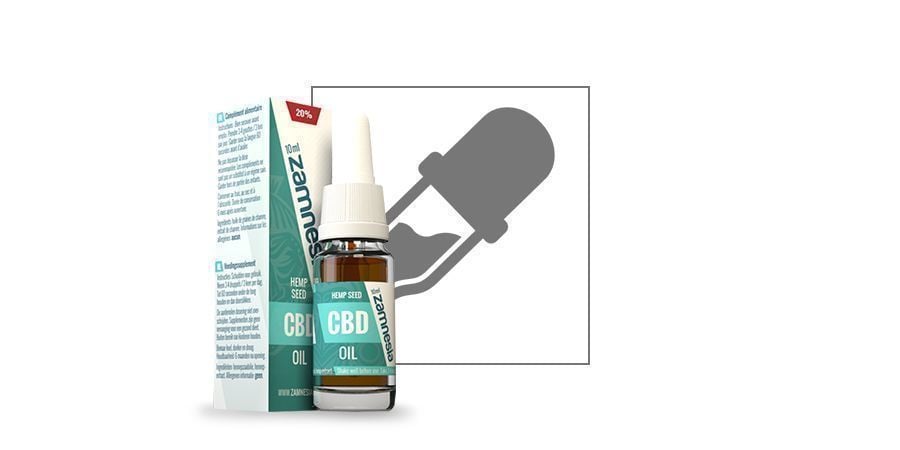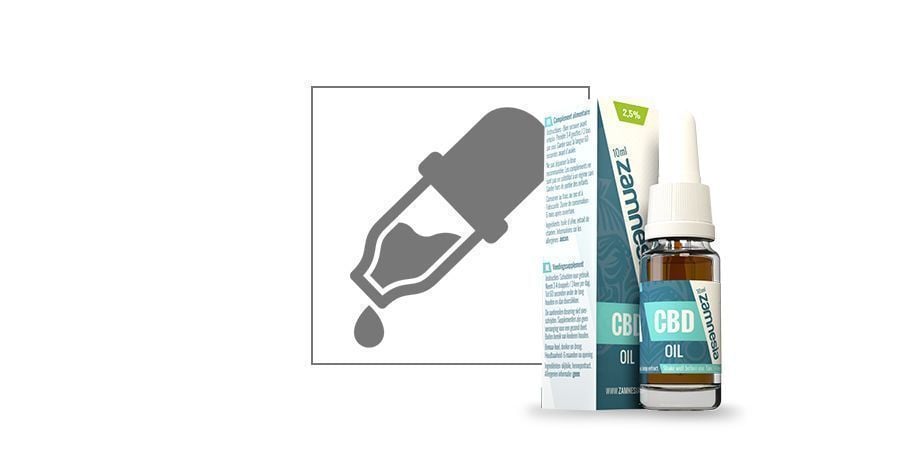Which Is A Better Carrier For CBD, Hemp Seed Oil Or Olive Oil?
CBD oils are created using an array of different carrier oils—so which is better, hemp seed oil or olive oil? What about other carrier oils?
To create CBD oil, CBD is first extracted, then mixed with a carrier oil. This doesn't change the effectiveness of the CBD; it makes it easier to dose, and some carrier oils have benefits of their own.
Since carrier oils do not change the properties of the CBD suspended within, in this regard, one is not superior to another. The oil simply dilutes the CBD to create a product with a consistent strength, making it easier for consumers to measure out a single dose. However, both hemp seed oil and olive oil have benefits of their own. Which one to choose is a matter of personal preference, and can be based on dietary concerns, taste, or lifestyle choices.
HEMP SEED OIL VS OLIVE OIL
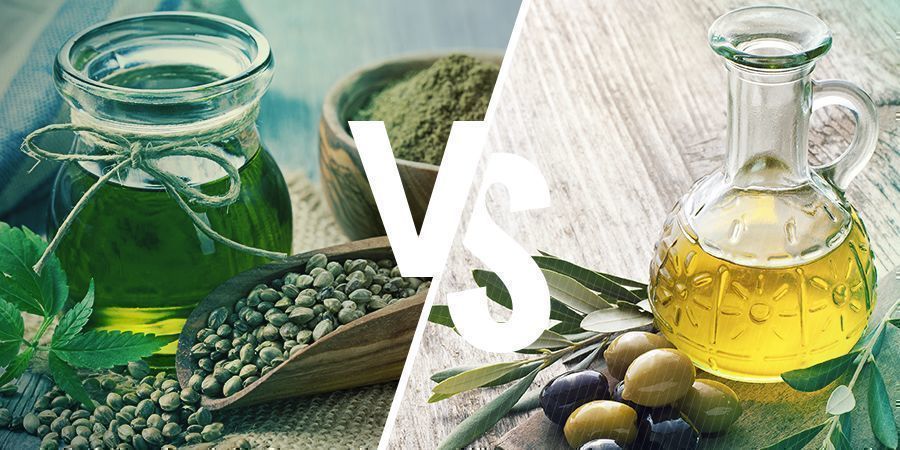
Olive oil and hemp seed oil are the most frequently used carrier oils for CBD products, so let's take a look at how they compare.
OMEGA-6 TO OMEGA-3 RATIO
On average, hemp seed oil has a 3:1 omega-6 to omega-3 ratio, which roughly fulfills our nutritional needs, compared to olive oil's 10:1 average ratio.
So, which is better? It depends on your diet and whether you already receive enough omega-3.
Research shows a healthy nutritional intake to be 4:1 omega-6 to omega-3, or lower. Unfortunately, a standard Western diet full of processed foods can push this ratio as high as 15:1–16.7:1.
If a combination of diet and omega-3 supplements already provides you with an optimal ratio of these two fatty acids, olive oil is just as valid a carrier as hemp seed; however, if you don’t receive enough omega-3, it might be worth considering a hemp seed oil base.
TASTE DIFFERENCE
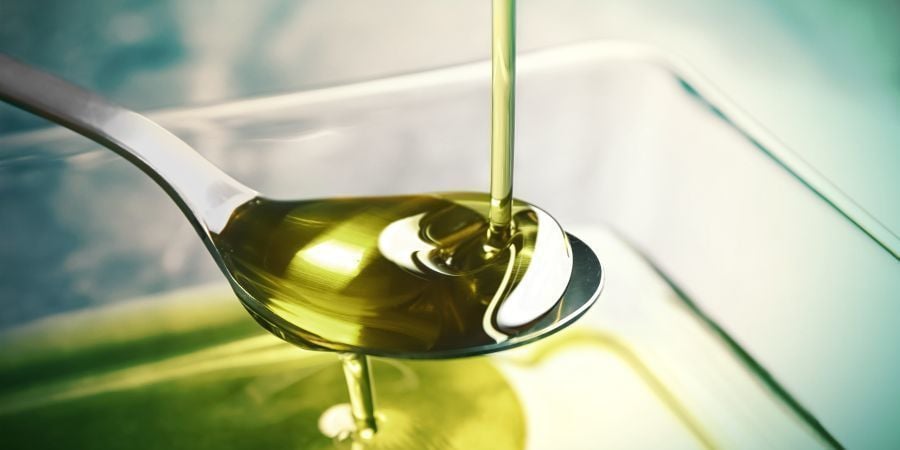
Some people find the strong, nutty taste of hemp seed oil to be very palatable, and believe it makes for a more authentic hemp experience.
Olive oil, on the other hand, is much milder and will have a familiar taste to most people since it's one of the most commonly used oils in cooking. If you can't stomach even a mild cannabis taste, this might be your best choice.
If you're unsure, many stores now sell both hemp seeds and hemp seed oil in their grocery aisles. This is an inexpensive way to give the flavour a try before you invest in a CBD product that uses hemp seed oil as a carrier.
OIL STABILITY AND STORAGE REQUIREMENTS
Olive oil is higher in saturated fats than hemp seed oil, and that gives CBD suspended in olive oil a longer shelf-life than the same CBD suspended in hemp seed oil. If you prefer to take your oils with you on the go, olive oil may be a better choice. CBD products that use hemp seed carrier oil will break down more quickly due to temperature changes and exposure to light. However, for those who store their CBD in the refrigerator, hemp seed oil is an equally good option.
POSSIBLE ALLERGIC REACTIONS

If there's any possibility that you have a nut or seed allergy, avoid hemp seed oil in all its forms.
Olive oil, on the other hand, is made from the fruit of the olive and not the seed or pit, and it does not trigger any type of nut allergy. It's well tolerated by virtually everyone and rarely causes any type of allergic reaction or food sensitivity.
OTHER CARRIER OILS USED WITH CBD
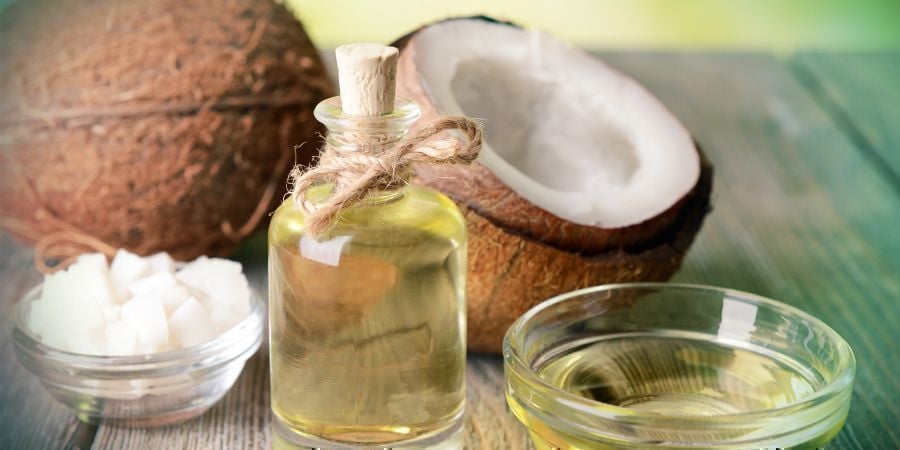
Several other types of carriers can also be used to make CBD oils. Again, these oils do not change the properties of the CBD suspended within, and each one will have a different taste and nutritional profile.
Fractionated coconut oil is a processed version of regular coconut oil. The long-chain fatty acids have been removed so that only the medium-chain triglycerides remain. Fractionated oils are virtually tasteless with no smell, making it a preferred choice for sublingual use.
CBD can also be mixed with avocado oil. Avocados are packed with vitamins and healthy fats, but it's very thick, heavy, and more expensive compared to olive oil and hemp seed oil. It's more suitable for CBD products used topically instead of orally.
CBD products that use grape seed oil as a carrier should be avoided. It contains mostly polyunsaturated fats, so it's not very efficient when mixed with saturated-fat-loving CBD.
SUMMARY

CBD oils are just as effective whether they're made with olive oil or hemp seed oil. Choose the one that best suits your needs based on how they taste and your dietary choices.
For an authentic hemp experience and a more desirable omega-6 to omega-3 ratio, try a product with a hemp seed carrier oil like Zamnesia's CBD Hemp Seed Oil. It contains 5% CBD, plus a wide range of nutrients including protein, Vitamin E, potassium, and magnesium.
Zamnesia's CBD Oil made with olive oil provides a viable option for those who prefer a milder taste and already use omega-3 supplements. It contains 4% CBD.
Both products are made from the highest-quality hemp grown in the EU, using all-natural farming methods with no exposure to preservatives, synthetic chemicals, or other additives.
- Simopoulos AP. (2002 Oct). The importance of the ratio of omega-6/omega-3 essential fatty acids. - PubMed - NCBI - https://www.ncbi.nlm.nih.gov
-
 3 min
20 March 2025
Top 5 high-CBD cannabis strains
The five high-CBD cannabis strains on our list feature exceptional levels of cannabidiol alongside fantastic flavours and fast, easy growth. Which one will you grow first?
3 min
20 March 2025
Top 5 high-CBD cannabis strains
The five high-CBD cannabis strains on our list feature exceptional levels of cannabidiol alongside fantastic flavours and fast, easy growth. Which one will you grow first?
-
 6 min
9 August 2022
What Is Cannabidiol (CBD)?
CBD has risen to stardom in the supplement world. But what propelled a single plant-derived molecule to such great heights? There are certain elements at play here. Early research has turned out...
6 min
9 August 2022
What Is Cannabidiol (CBD)?
CBD has risen to stardom in the supplement world. But what propelled a single plant-derived molecule to such great heights? There are certain elements at play here. Early research has turned out...
-
 4 min
8 August 2021
Top 5 Zamnesia CBD Products
Shopping for CBD can be a confusing experience. There are so many products and brands out there. At Zamnesia, we provide a high-quality CBD line featuring numerous easy-to-use products.
4 min
8 August 2021
Top 5 Zamnesia CBD Products
Shopping for CBD can be a confusing experience. There are so many products and brands out there. At Zamnesia, we provide a high-quality CBD line featuring numerous easy-to-use products.
-
 4 min
6 August 2021
How To Use CBD: Which CBD Product Is Right For You?
CBD is becoming an increasingly popular dietary supplement, yet for the unfamiliar, knowing the most suitable way to take CBD can be a challenge.
4 min
6 August 2021
How To Use CBD: Which CBD Product Is Right For You?
CBD is becoming an increasingly popular dietary supplement, yet for the unfamiliar, knowing the most suitable way to take CBD can be a challenge.













 United States
United States


